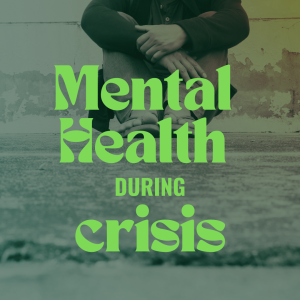In today’s world, the importance of mental health education cannot be overstated. Mental health must become a priority in schools, communities and society. Especially among secondary school students going through adolescence, it is a crucial period whereby they face various challenges, which involve academic pressure, social dynamics, and personal development, making it essential to equip them with mental health skills beyond textbooks.
Just as observed in other parts of the world, mental health is a critical issue that is often overlooked in Nigeria. This neglect is exceptionally high for several different reasons, however, researchers denote that spiritual and cultural beliefs are the leading cause of neglect. In some cases, there is a consensus that mental health issues should not be discussed at all.
According to the World Health Organization (WHO), most mental health disorders symptoms are first presented in late teenage or young adulthood years. With this level of early presentation, families, schools, and communities all have a vital role in impacting a child’s mental development. While family is important, schools can also help promote mental well-being. As primary settings where children spend a substantial amount of time, schools have a unique opportunity to contribute to this support network.
Ways to Incorporate mental health programs in school
It is important to include mental health education and awareness in the academic curriculum as well as outside textbooks. Schools can organize awareness-raising activities and campaigns to promote the same. One effective approach is to conduct interactive workshops and seminars led by mental health experts. These sessions can cover topics such as stress management, emotional regulation, resilience, and seeking help when needed. It is crucial to equip students with coping strategies and emotional regulation tools. Mindfulness practices can be incorporated into daily school routines by creating peer support groups.
Working with reputable mental health organisations (such as LagosMiND) is also essential, as they can offer teachers training, necessary resources, and support networks for students needing expert help. Access to counseling services or hotlines for students in need can also be facilitated via partnerships with local NGOs or government organizations committed to mental health.
Furthermore, schools have the power to create a well-rounded approach to help student improve their mental health by involving parents in the conversation. By offering resource workshops, support, and regular communication, schools can build a community that supports the well-being of their students beyond the classroom. Through collaboration, we can create a brighter future for our children, where mental health is given the attention and support it deserves.
In conclusion, there are various ways to educate secondary school students about mental health issues beyond the conventional textbooks. A comprehensive approach that includes parental participation, awareness campaigns, practical skills, and exercises is necessary for learning. By equipping students with fundamental knowledge and skills related to mental health, we are empowering them to lead healthier lives
Together, let us strive to create a brighter future for Nigerian youths by instilling in them the necessary tools to take control of their mental health.


